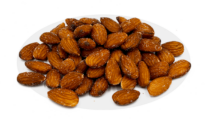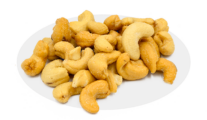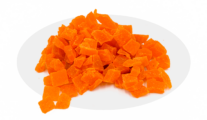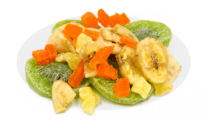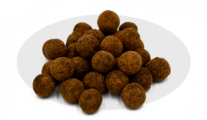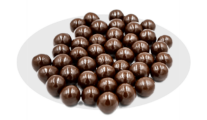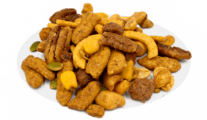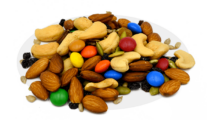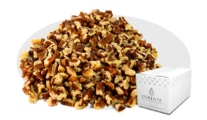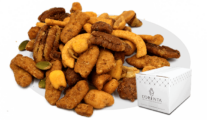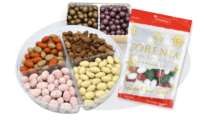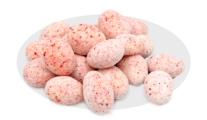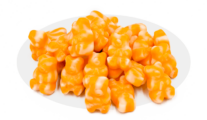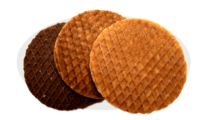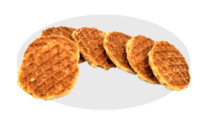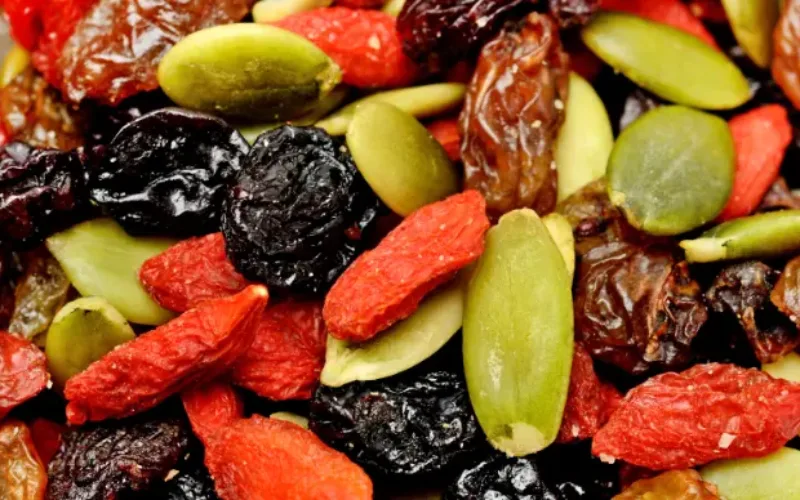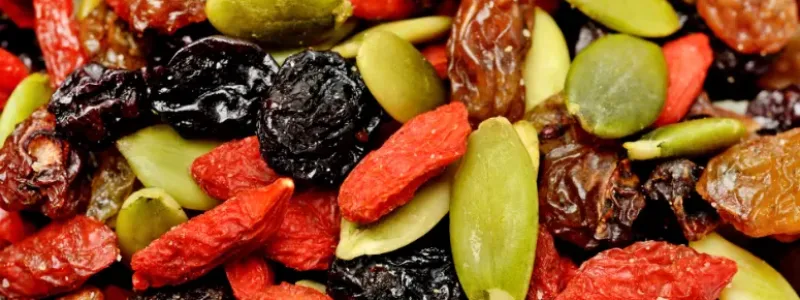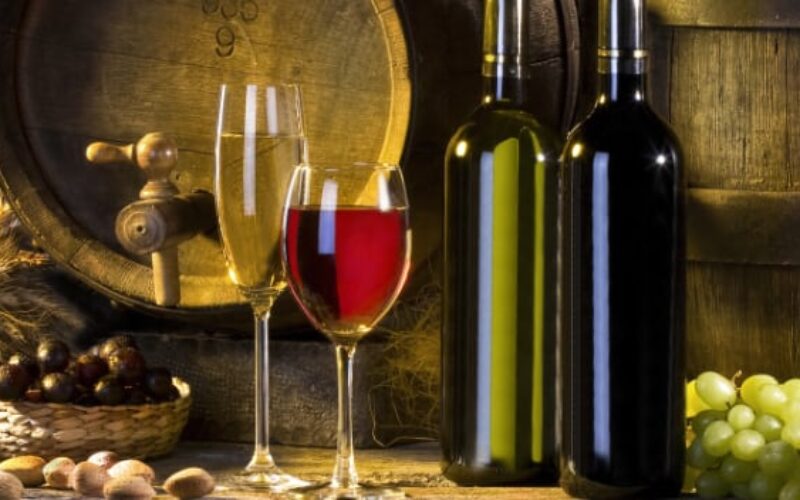Written By Sam Henselijn
Nutrition and Benefits of Pumpkin Seeds vs Peanuts. Ever wonder how your favorite nuts and seeds compare in terms of nutrition? Is it all just “in the same category?” – We compared the nutritional values of peanuts versus pumpkin seeds so you don’t have to.
Peanuts vs Pumpkin seeds
Let’s take a look at the nutritional facts for peanuts and pumpkin seeds. Then we can break it down more in depth. The amounts listed are per 100g.
DRY-ROASTED UNSALTED PEANUTS NUTRITION FACTS
Calories 587kcal
Carbohydrates 21g
Dietary Fiber 8.4g
Total Fat 50g
Saturated Fat 7.7g
Sodium 6mg
Protein 24g
Iron 1.6mg
Magnesium 178mg
Potassium 634mg
Copper 0.43mg
Manganese 1.8mg
Zinc 2.8mg
ROASTED UNSALTED PUMPKIN SEEDS NUTRITION FACTS
Calories 446kcal
Carbohydrates 54g
Dietary Fiber 18g
Total Fat 19g
Saturated Fat 3.7g
Sodium 18mg
Protein 19g
Iron 3.3mg
Magnesium 262mg
Potassium 919mg
Copper 0.69mg
Manganese 0.5mg
Zinc 10mg
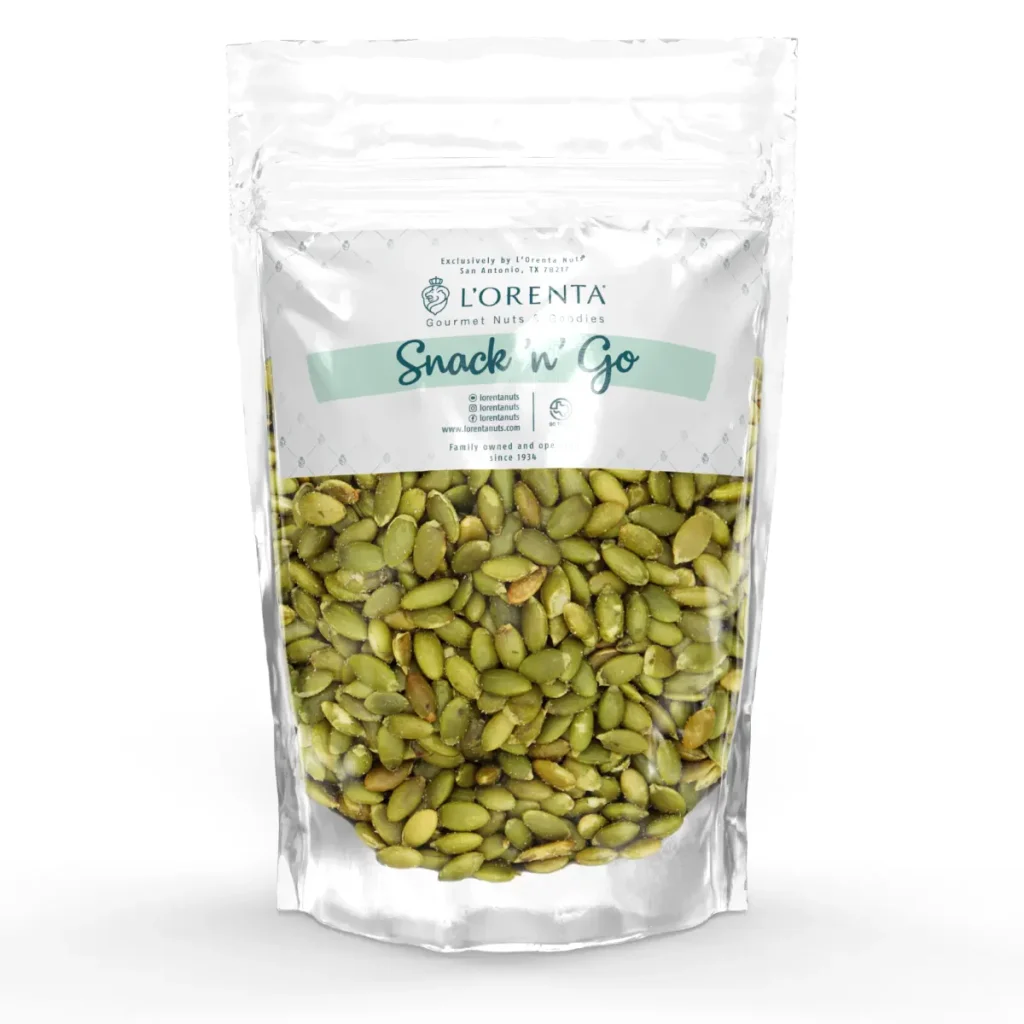
Protein
It seems like everyone is obsessed with getting more protein these days. And no wonder, since protein is so crucial to our general health. It’s what lends us strength, focus, bone maintenance… Basically, you need protein to stay healthy and have your body work the way it should.
Animal derived foods have a lot of protein – you know that. But there are several plant-based alternatives that also provide a large amount of this essential macronutrient. That’s where seeds and nuts come into play.
So, do pumpkin seeds have more protein than peanuts? Both are high in protein. Peanuts have more protein than pumpkin seeds. The nuts win with 24g of protein per 100 grams versus 19g of protein in pumpkin seeds.
Nutrition and Benefits of Pumpkin Seeds vs Peanuts
Vitamins
Now let’s talk about vitamins. Comparatively, pumpkin seed are a good source of Magnesium, Phosphorus, Iron. Peanuts are a better source of Vitamin E, Thiamin, Niacin, Phosphorus, Iron. They both contain similar amounts of Vitamin C and Vitamin A, though neither are very significant. Pumpkin seeds have significantly more Vitamins K and Zinc than peanuts. But peanuts contain more Vitamin E.
Fat
Peanuts are high in saturated fat, while pumpkin seeds have 52% less saturated fat. Both are low in trans fat though: peanuts have 0.03g of trans fat per 100 grams and pumpkin seeds don’t contain significant amounts.
Comparing calories
Both are pretty caloric. Peanuts do have 32% more calories than pumpkin seeds, though. The seeds have about 446 calories in every 100 grams, while peanuts have 587 calories.
But does that mean they’re bad snacks for people looking to lose weight? Not necessarily. All in all, peanuts and pumpkin seeds are incredibly nutritious.
And even though peanuts are high in calories, you may not absorb all of them. Studies have shown when you eat peanuts, you don’t break them down into a small enough size for full digestion. That means you’re probably absorbing fewer calories while the rest is eliminated through waste.
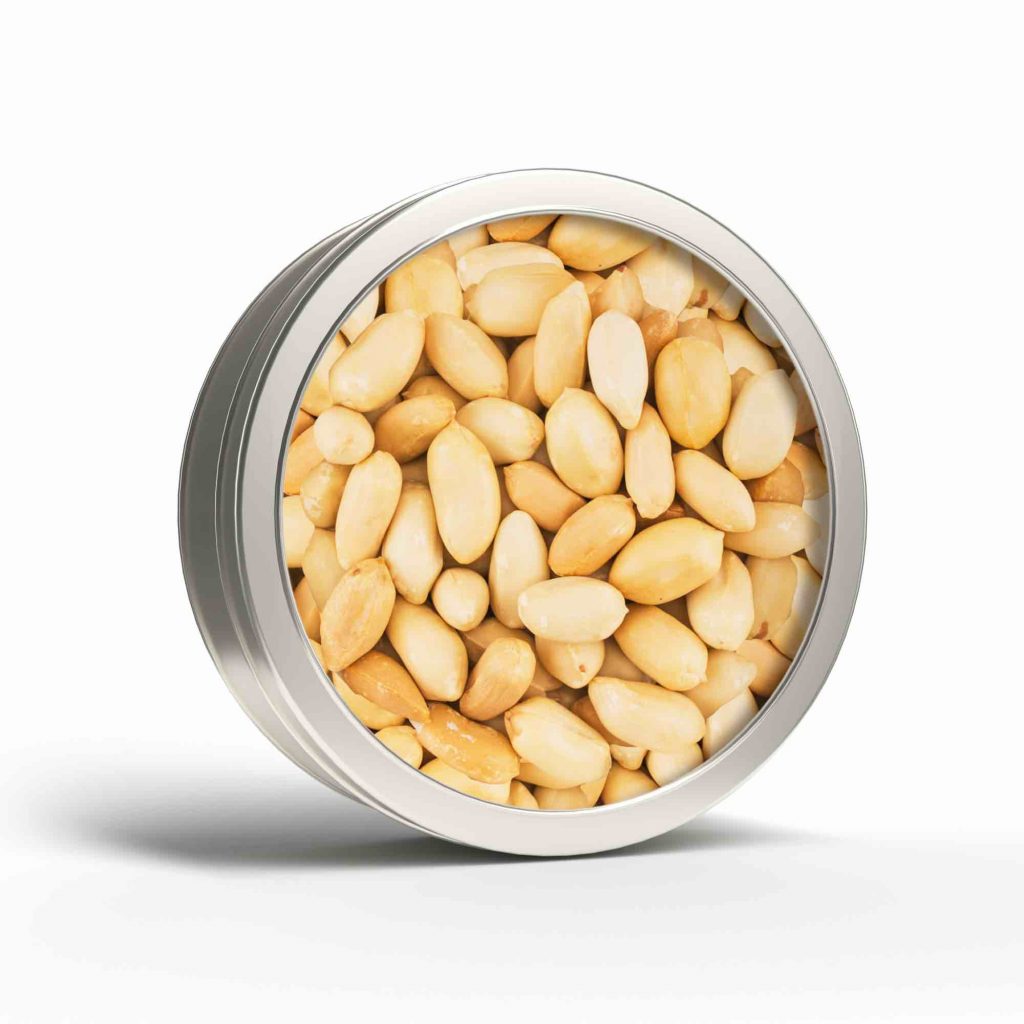
Overview
Here’s a quick summary of the nutrition and differences in peanuts and pumpkin seeds:
-Comparing macros, peanuts have a lot more fat, but are much lighter in carbs. The amount of protein is similar in both.
-Both are high in calories, calcium, fiber, potassium and protein.
-Peanuts have more Vitamin B6 and significantly more Vitamin E than pumpkin seed.
-Pumpkin seeds are an excellent source of iron.
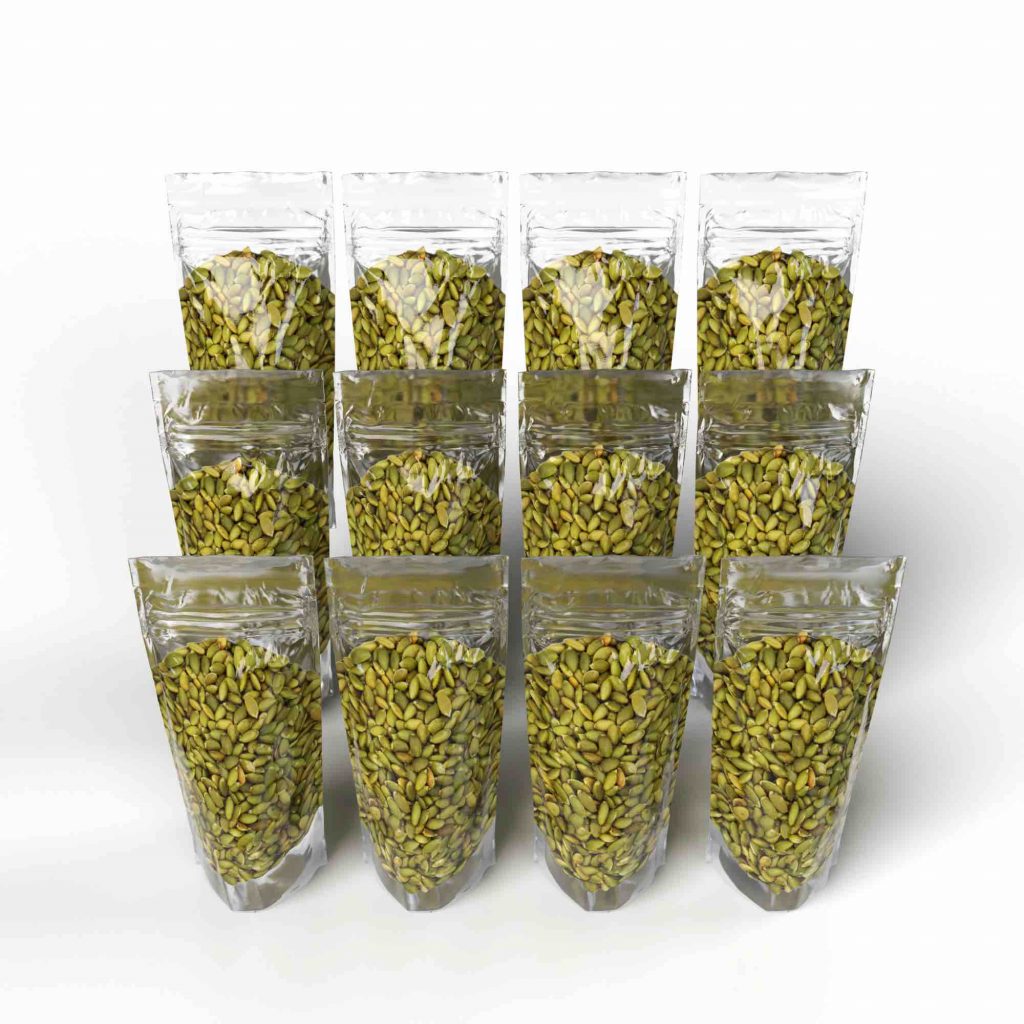
Are pumpkin seeds the healthiest seed?
Pumpkin seeds, also known as pepitas, are indeed nutritious and offer various health benefits, but whether they are the “healthiest” seed depends on the specific nutrients and health goals you are considering. Different seeds have unique nutritional profiles, and what might be considered the healthiest can vary based on individual needs.
Pumpkin seeds are a good source of:
Nutrients: They are rich in magnesium, zinc, iron, and copper.
Protein: Pumpkin seeds contain a decent amount of protein.
Fiber: They provide dietary fiber, which is beneficial for digestive health.
However, other seeds also offer their own set of health benefits. For example:
Chia seeds: High in omega-3 fatty acids, fiber, and antioxidants.
Flaxseeds: Excellent source of omega-3 fatty acids, lignans, and fiber.
Sunflower seeds: Rich in vitamin E, magnesium, and selenium.
It’s essential to include a variety of seeds in your diet to ensure you get a diverse range of nutrients. The healthiest seed for you might depend on your specific nutritional needs, taste preferences, and dietary restrictions. Incorporating a mix of seeds into your diet can contribute to a well-rounded nutrient intake.
Sam Henselijn Author’s Biography – Meet L’Orenta Nuts CEO
Copyright 2024 L’Orenta Nuts
L’Orenta Nuts proudly holds the SQF food safety certification, symbolizing our unwavering dedication to upholding the highest standards of food safety and quality. This certification guarantees that our products undergo rigorous scrutiny, ensuring transparency, traceability, and adherence to global food safety regulations for the utmost consumer confidence.
L’Orenta Nuts has the HACCP (Hazard Analysis and Critical Control Points) certification is a systematic approach to identifying, evaluating, and controlling food safety hazards. It ensures that food products are produced and handled in a manner that minimizes risks and complies with safety standards.
Our GMP (Good Manufacturing Practices) certification ensures that a manufacturing facility adheres to comprehensive quality and safety standards while producing pharmaceuticals, food, and other consumer goods, promoting consistency, quality, and compliance with regulatory requirements.
L’Orenta is an FDA-approved manufacturing facility and has met the rigorous standards set by the U.S. Food and Drug Administration. It demonstrates compliance with regulations, ensuring the production of safe and high-quality food products.


